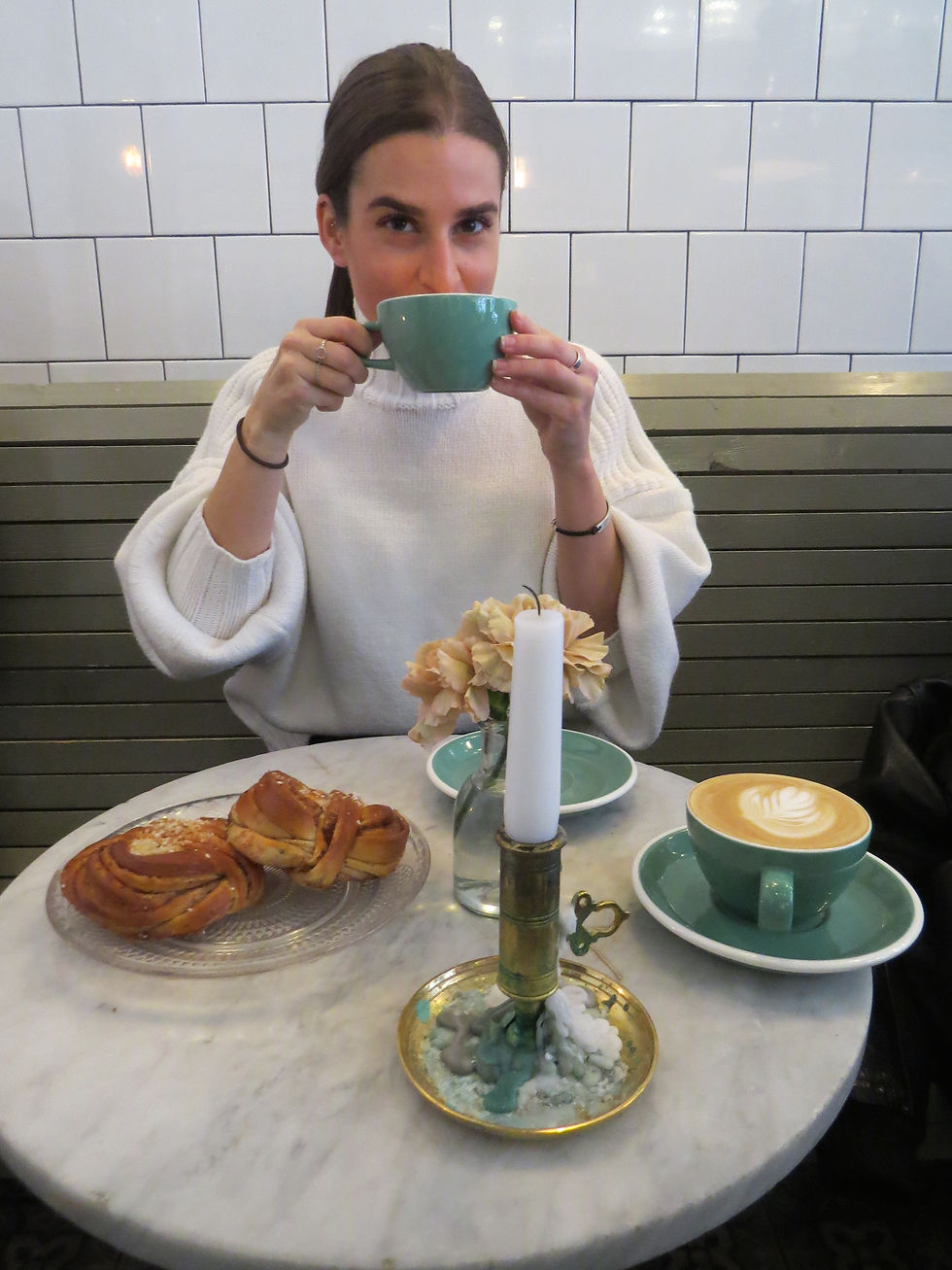The Philosophy Of Fika
- Amy Overy
- Feb 16, 2020
- 3 min read
Updated: Jun 16, 2020

Of all of the Scandinavian concepts to migrate southwards to our shores in recent years, Fika is definitely one I can get on board with. Translating basically from Swedish as a ‘coffee and cake break’, its meaning goes far beyond this simplistic concept.
“It’s an afternoon rite of passage you have, to break up your day” explains freelance F1 Digital Media Manager Alex Thomson, who recently spent time living in Stockholm . “We worked in quite a small office, so we tended to do it together if we were going to have Fika. We'd have it usually after lunch when we'd done another lot of tasks, and reached that point when we didn't want to keep working. It’s that little hit in the afternoon when you’re sort of lagging, especially in Winter when it’s already dark. It’s that nice little pick me up that keeps you going”
So far, so sociable. But what actually IS Fika?
“It’s when you take time to have a coffee and usually a sweet pastry - cinnamon buns are the typical Swedish Fika. Swedish coffee is black coffee with just a dash of milk, like an Americano or Long Black depending on where you’re from - I'm Australian so it's a Long Black! Every cafe that I have been into in Stockholm, whether it’s a standalone cafe or a chain, everywhere will have that typical cinnamon or cardamom bun. I probably pronounce it horrifically, but it’s ‘kannelbuller’ in Swedish. My favourite is the cinnamon - I do like the cardamom bun, but I really like the sweetness of the cinnamon bun”

"For me it's cinnamon buns or chocolate balls" says curator, arts producer and upholsterer Sophie Persson, who grew up in a Swedish household. "Although at Easter, Swedes make Semla which is a bun traditionally eaten on Shrove Tuesday before Lent. It's a cardamom bun cut in half and filled with whipped cream and marzipan. That's really the only variation to normal Fika"
Despite protesting that she's not a 'native Swede', Sophie grew up speaking Swedish and spent all of her summer holidays in Sweden with her parents, and remembers her Mum always having cake or biscuits waiting for her when she got home from school. It's something that Sophie has continued with her own family. "I probably bake around 3 cakes a week or a batch of biscuits - I follow my Mum's tradition. My girls go to a Swedish school on Saturdays, and the whole school stops at 11am for Fika".
A Fika break can occur in the morning or the afternoon, with some Swedish workplaces enjoying caffeine and cake fuelled time out, multiple times during the day although this isn't strictly prescriptive.
“Usually you’d have Fika around 3pm, that’s the common time" Alex explains. "There were times I’d be in the office and it was 11am, and I’d say “I’m going to get Fika” and everyone would be like “Now..?”. To be honest, I was a terrible imposter Swede because I didn't follow the timings for it...I’d have it at 11, or if friends were visiting we’d go out for breakfast or brunch and I’d say “have the kannelbuller!” she says.
When Sophie left school and went to Sweden for 5 months to work, Fika breaks were taken both in the morning and the afternoon, and considered such an important part of the office culture that the company provided the buns.

“There was a cafe attached to our office" remembers Alex, "and on my first day we got lattes (because we’re Australian) and kannelbuller, and I just remember thinking ‘this is the best thing I’ve ever had’. In Australia we’ve got cinnamon scrolls - the bun is sort of similar I guess, but the sweetness is icing and even though it’s called a cinnamon scroll, the cinnamon flavour isn’t there so much, it’s not as strong and its more sugary. When someone visited me in Stockholm, I'd watch intently for the first bite and say 'do you love it? Have I changed your life?’"
Whilst it sounds as though the sweet treat is ultimately the main appeal behind the concept of Fika, there is deeper meaning to this daily ritual.
"Swedes drink an awful lot of coffee and eat an awful lot of sugar" agrees Sophie, but adds "It's a pause in the day, it's super important. There's a communal aspect to it...a strong sense of community. I love how acceptable it is to stop whatever you're doing to have a bun"
Comments